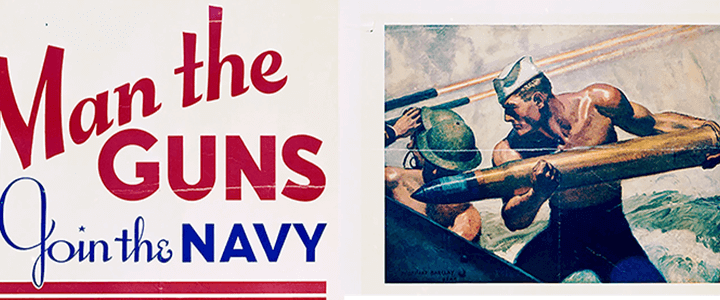There are many things you might have to give up when you hold a security clearance, but in most cases your firearm is not on the list. It’s also a misconception, however, that possessing a security clearance provides any advantages in obtaining a firearms permit.
A small percentage of cleared jobs may require firearms training. For example, all ATF Special Agents require Top Secret (TS) security clearance, and in many in many cases may need the higher level TS/SCI (Top Secret/Sensitive Compartmented Information) clearance. This is in addition to firearms training. The same holds true for many in the intelligence community and, of course, the military.
Those working for the government or a contractor may question whether owning firearms presents a problem, but as long as the guns are legally obtained and maintained, there’s no reason to worry.
“I have never come across or heard of a security clearance (issue) where mere ownership of a firearm presented a clearance problem,” said attorney Mark Zaid, who specializes in litigation and lobbying on matters relating to international transactions, torts and crimes, national security.
“Of course, if there were an arrest connected to the ownership/possession, that would be different,” Zaid told ClearanceJobs.
Firearms and the Law
Where matters may get more complicated is in understanding that firearm ownership generally falls under both federal and local jurisdiction. What is legal to own – and possibly even carry – in one state could be completely illegal in another. All gun owners are expected to know these laws, and that includes the purchase of firearms.
“As long as you are lawfully in possession and mind your Ps and Qs in obtaining a firearm it won’t be a problem when it comes to obtaining clearance,” explained Chuck McCullough, partner at the Tully Rinckey PLLC.
“I don’t know anyone who has been denied clearance for lawfully obtaining a firearm,” McCullough, who handles security clearance issues for federal employees nationwide, told ClearanceJobs. “A lot of people who work for the government or with contractors are often on a pistol team or are members of a gun club. And there are a lot of hunters all over the country.”
In other words simply owning firearms isn’t an issue.
“It is important to remember that a security clearance process includes a whole person assessment, so someone with a psyche condition and who owns a number of firearms – that would be an issue,” said McCullough. “If someone was seen to have an obsession with firearms that might be seen as an issue, but an unhealthy obsession with anything might also be seen that way.”
Red flags would instead be issues that aren’t specific just to firearms. Poor gun safety such as an accidental discharge would be on par with reckless driving or driving under the influence, in that it shows poor judgment.
“Firearms become an issue when there is something on top of it, such as if you were a violent person, or if you filed for bankruptcy because you bought too many guns and can’t pay the bills,” noted McCullough.
Automatic Weapons and Silencers
Some firearms and accessories are in the media crosshairs today including items like silencers and bump stocks, but unless someone is breaking the law even these items won’t be an issue, nor will those items create any red flags in a background check.
Today in 37 states it is legal to purchase firearms such as a working machine gun, short barreled rifle or silencer/suppressor. These weapons require registration under the National Firearms Act, which was first enacted in 1934. To legally obtain these items individuals must acquire a transfer stamp from the Bureau of Alcohol, Tobacco, Firearms and Explosives.
This process requires applicants to submit fingerprints, passport sized photos and the respective transfer application form to the ATF, a copy of which must be supplied to the applicant’s Chief Law Enforcement Officer (CLEO).
This process costs around $200 for the transfer form, in addition to the costs of the fingerprinting and photos. Currently applicants can expect to wait for up to a year or longer for approval.
It is also important to note that today there is a collector’s market for machine guns, but almost all of these are vintage military firearms dating back to the Vietnam War or much earlier. These weapons tend to cost thousands or even tens of thousands of dollars, so it is a very niche market. Being part of it won’t affect one’s security clearance.
“As long as these were legally purchased a machine gun wouldn’t be an issue,” added McCullough. “It might only be a problem if you were to buy one as your first gun out of the blue. That might be something an investigator might want to know about.”
Clearance and Gun Permit Approval
It is also worth noting that just as firearms won’t likely be an issue in the clearance process, holding a clearance won’t actually improve one’s chances for obtaining a firearms permit either. This is especially true in those states or communities that have strict gun laws. Holding even a high level of clearance won’t actually improve the chances of obtaining a concealed carry permit unless it is necessary for the job.
In addition, if you live in one of the 13 states that has a ban on Class III firearms (e.g. machine guns, short barreled rifles, silencers) clearance won’t change the law for you.
“You could be the head of the CIA and your clearance won’t make any difference,” said Jef Henniger, a New Jersey-based attorney specializing in Second Amendment rights. “Security clearance isn’t relevant in any way.”
However, depending on the state and local laws clearance could be a factor that shows a judge and/or law enforcement that you are an upstanding citizen.
“It won’t carry the day,” Henniger told ClearanceJobs. “It is really no different from saying that you haven’t gotten more than a parking ticket.”




